Table of Contents
Lobster tails are a delicacy known for their tender texture and rich flavor. Making them a popular choice in fine dining. Beyond their taste, lobster tails are also packed with lean protein and essential amino acids, making them an excellent addition to a healthy diet. In this article, we’ll explore the nutrition facts of lobster tails. Including their calories and fats, fatty acids, and protein content. Additionally, we’ll discuss the health benefits of consuming lobster tails and how they can contribute to overall well-being. Including weight loss, mental health, and supporting the immune system.
What Makes Lobster Tail a Protein Powerhouse?
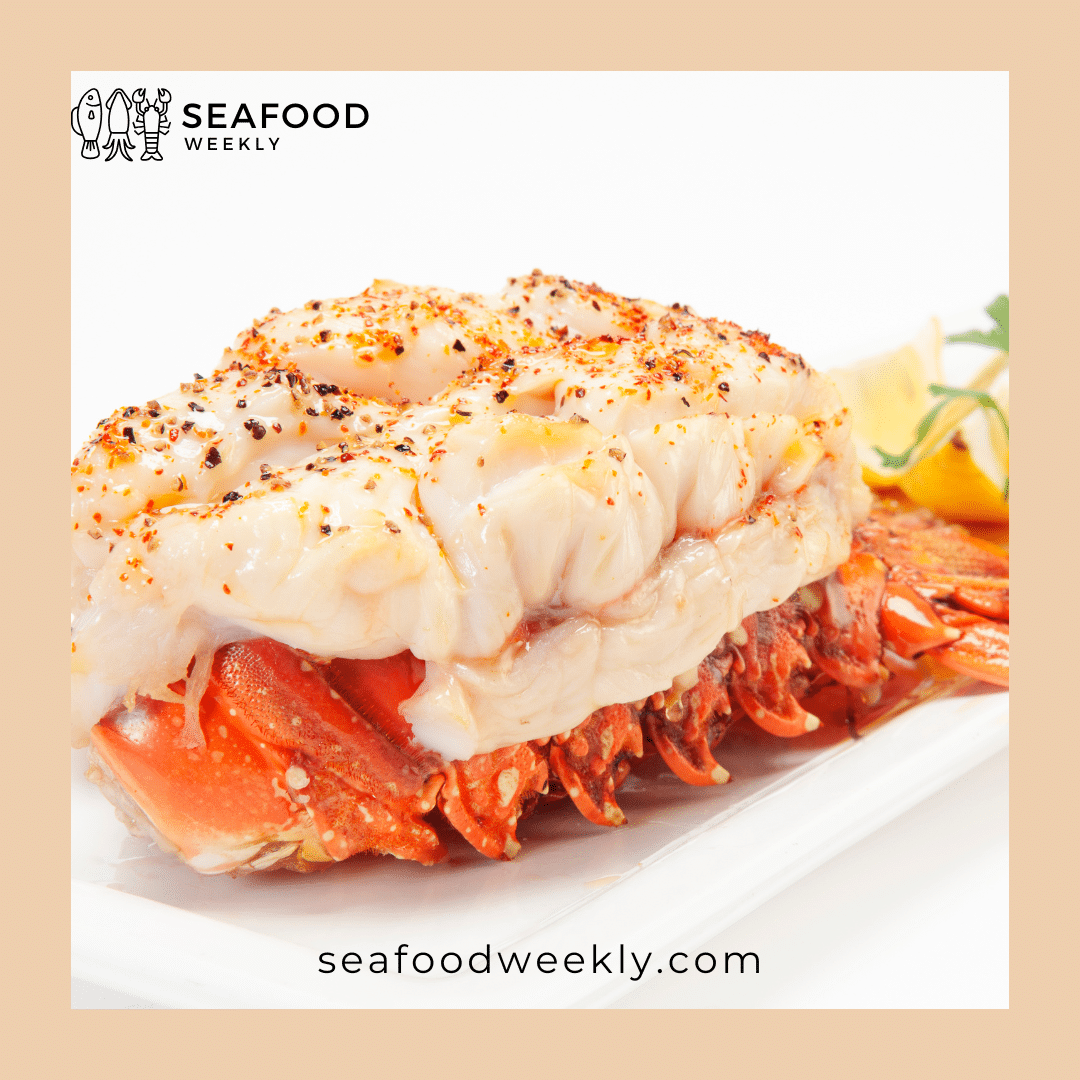 Lobster tail is known for its firm texture and subtly sweet taste, but it’s also a protein-packed option. With just a small serving, you can easily meet a significant portion of your daily protein needs. So, if you’re looking for a lean, low-fat source of protein, lobster tail can be a delicious addition to your diet.
Lobster tail is known for its firm texture and subtly sweet taste, but it’s also a protein-packed option. With just a small serving, you can easily meet a significant portion of your daily protein needs. So, if you’re looking for a lean, low-fat source of protein, lobster tail can be a delicious addition to your diet.
- Protein Content in Lobster Tail
- A typical 3-ounce portion of lobster tail contains about 20 grams of protein. That’s nearly 40% of the recommended daily protein intake for an average adult! This makes lobster tail an excellent option for those seeking a high-protein meal without consuming a lot of calories or fat.
- Low in Fat, High in Protein
One of the standout benefits of lobster tail is its low fat content. With only about 1 gram of fat per 3-ounce serving, it provides protein without the extra calories from fat. This makes it a great choice for those who are watching their fat intake while still looking to fuel their bodies with muscle-building nutrients.
Comparing Lobster Tail to Other Protein Sources
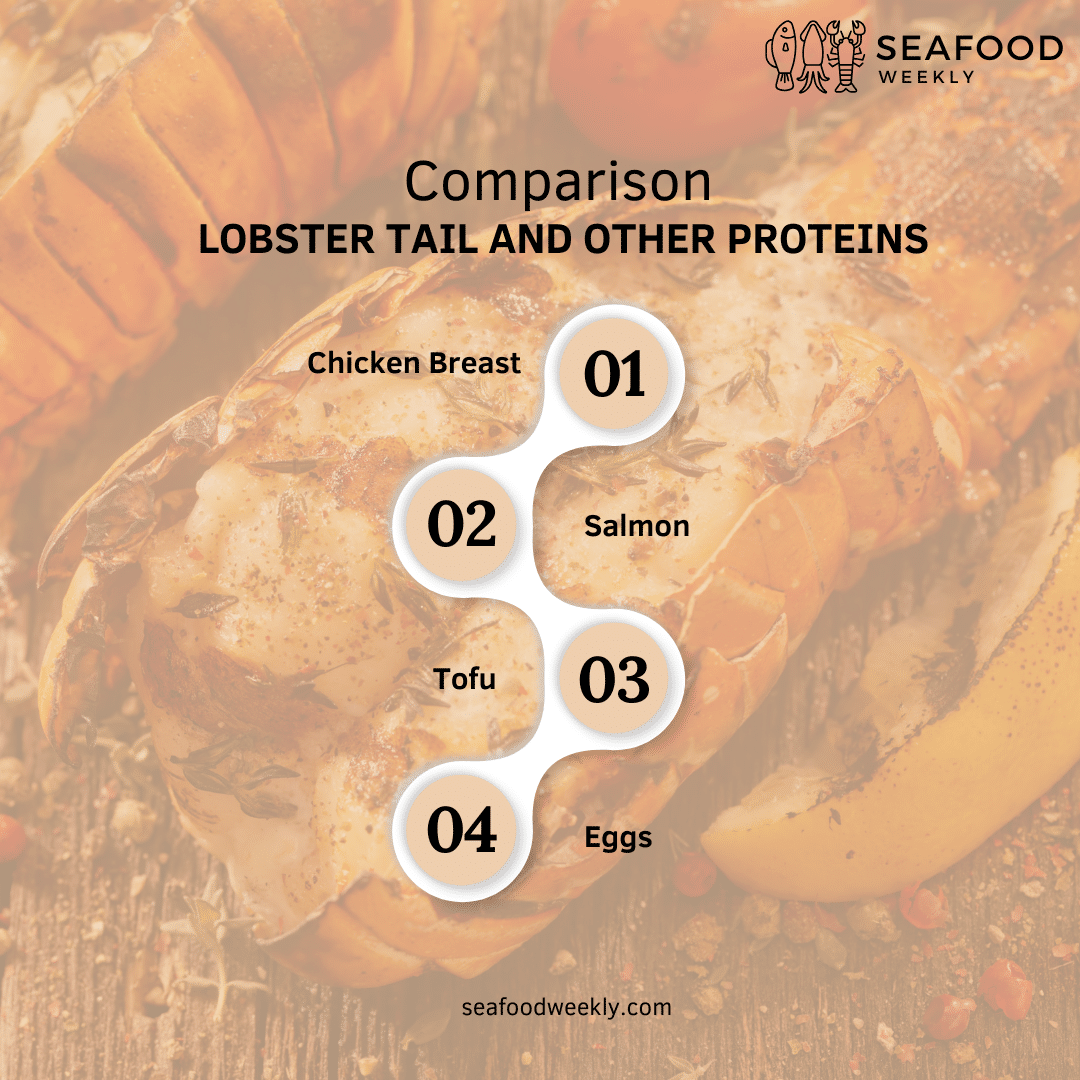 While lobster tail is a fantastic source of protein, how does it compare to other protein-rich foods? Let’s take a look at some common options:
While lobster tail is a fantastic source of protein, how does it compare to other protein-rich foods? Let’s take a look at some common options:
- Chicken Breast
Chicken breast is often hailed as a top protein source. A 3-ounce serving of cooked chicken breast contains about 25 grams of protein, which is slightly more than lobster tail. However, chicken breast also contains more fat, especially if not cooked properly or eaten with the skin.
- Salmon
Salmon is another protein-rich seafood option. A 3-ounce serving of salmon contains around 22 grams of protein, which is comparable to lobster tail, but salmon is higher in healthy fats like omega-3 fatty acids. These fats are great for heart health but add extra calories.
- Tofu
For vegetarians or vegans, tofu offers a plant-based protein option. A 3-ounce serving of tofu provides around 8 grams of protein, much lower than lobster tail. However, tofu is a versatile ingredient and a good option for those who follow a plant-based diet.
- Eggs
Eggs are another well-known protein source. A large egg provides about 6 grams of protein, but it also contains fat and cholesterol. Lobster tail, in contrast, offers a leaner source of protein.
Health Benefits of Protein from Lobster Tail
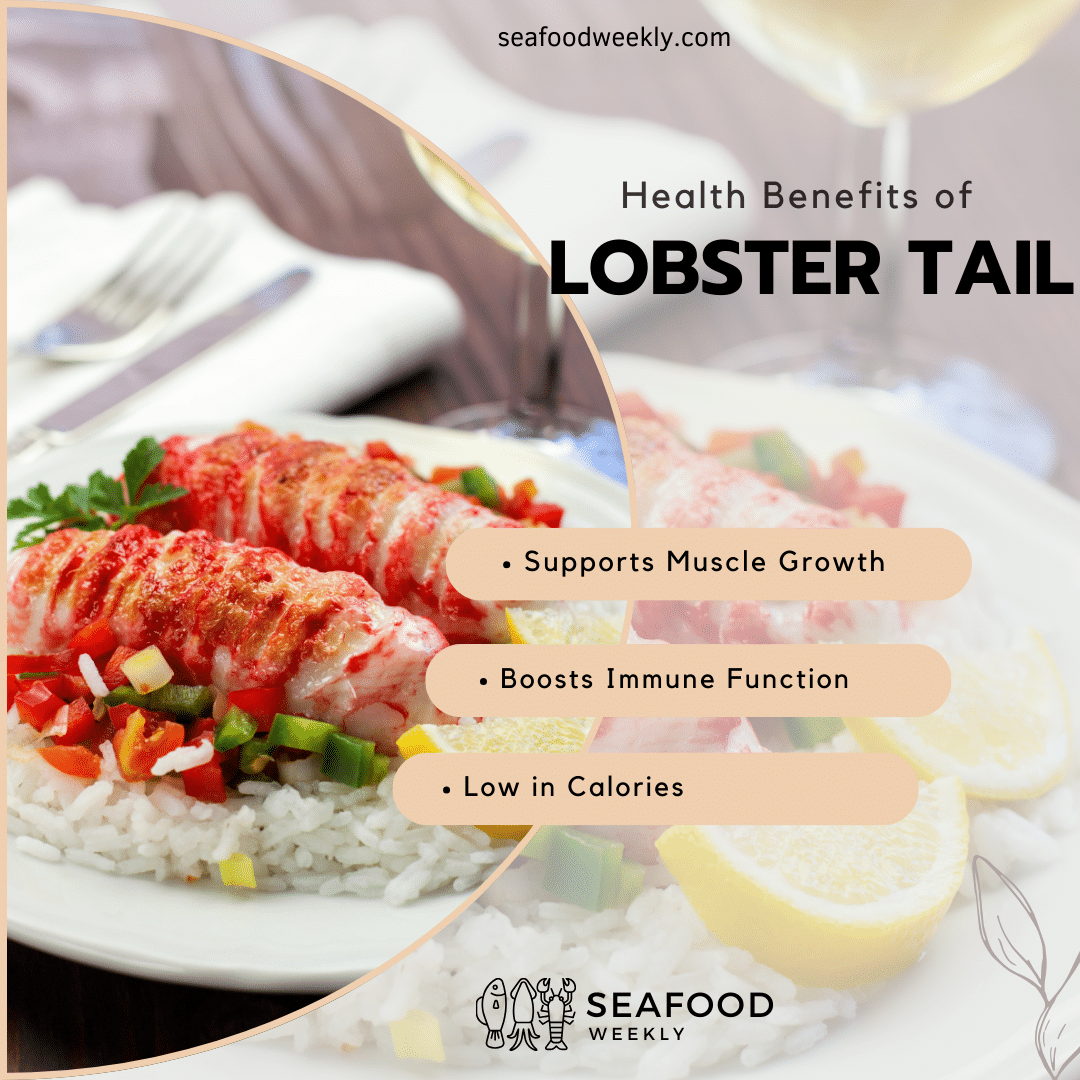 In addition to its high protein content, lobster tail comes with several health benefits that make it an excellent choice for anyone looking to improve their overall nutrition.
In addition to its high protein content, lobster tail comes with several health benefits that make it an excellent choice for anyone looking to improve their overall nutrition.
- Supports Muscle Growth
Protein is essential for muscle repair and growth, especially after exercise. The 20 grams of protein in a 3-ounce lobster tail can help support muscle recovery and aid in building lean muscle mass.
- Boosts Immune Function
Protein plays a vital role in maintaining a healthy immune system. Lobster tail provides amino acids that are crucial for immune cell function, helping the body fight off infections and illnesses.
- Low in Calories
For those watching their calorie intake, lobster tail is a low-calorie option. A 3-ounce portion contains approximately 85-90 calories, making it a great choice for those trying to lose or maintain weight while ensuring they get enough protein.
Other Nutrients in Lobster Tail
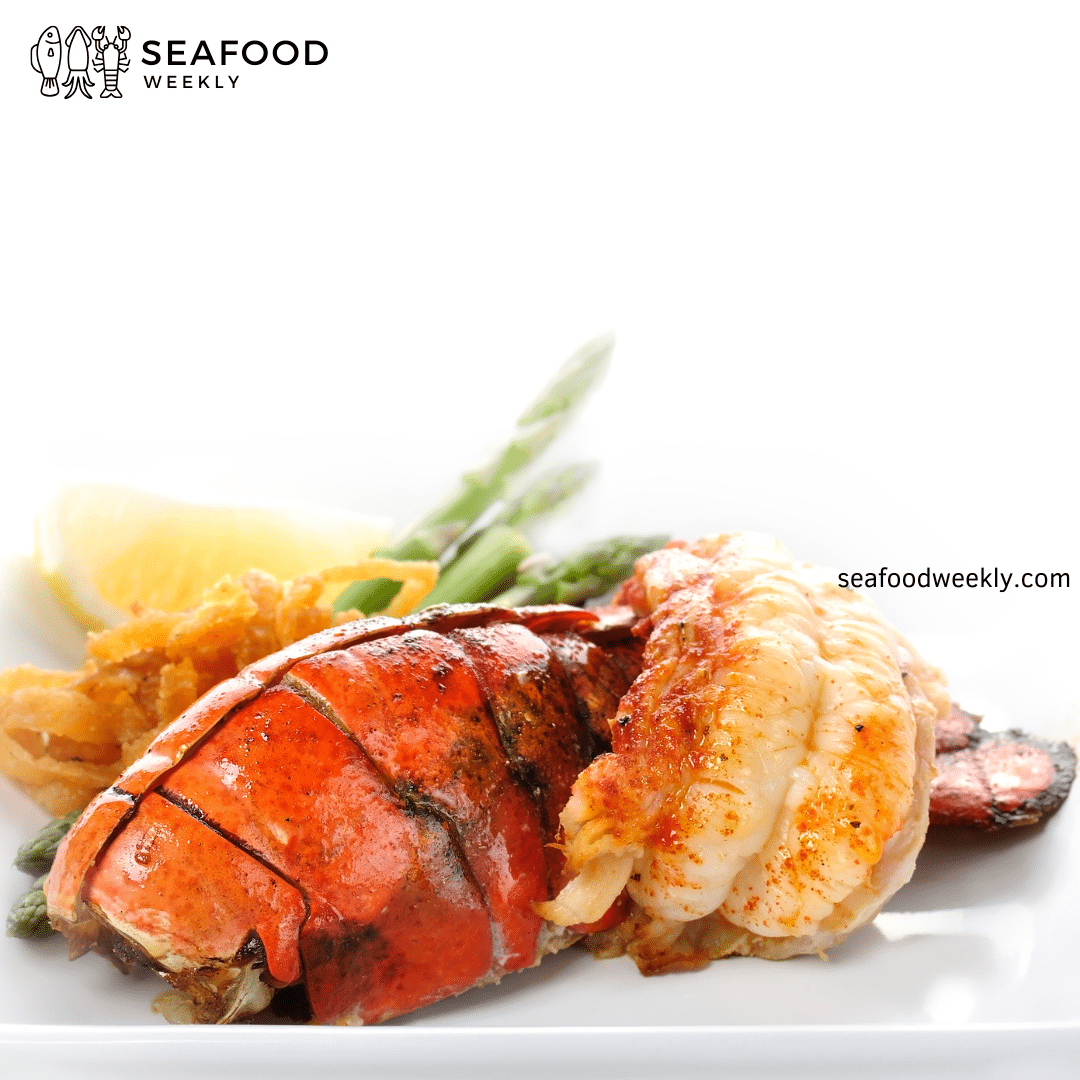 Besides protein, lobster tail offers a range of other essential nutrients that contribute to its overall health benefits.
Besides protein, lobster tail offers a range of other essential nutrients that contribute to its overall health benefits.
- Rich in Vitamins and Minerals
Lobster tail is an excellent source of several vitamins and minerals, including B vitamins (especially B12), zinc, and selenium. Vitamin B12 is important for nerve function and the production of red blood cells, while zinc supports immune health. Selenium acts as an antioxidant, protecting cells from damage.
- Omega-3 Fatty Acids
While not as rich in omega-3s as fatty fish like salmon, lobster tail does contain small amounts of these heart-healthy fats. Omega-3s are known for their ability to reduce inflammation and support cardiovascular health.
How to Enjoy Lobster Tail for Maximum Protein Benefits
 Lobster tail is incredibly versatile and can be prepared in various ways to suit different tastes. Whether you prefer it grilled, steamed, or baked, lobster tail retains its protein-packed benefits. Here are some delicious ways to enjoy lobster tail:
Lobster tail is incredibly versatile and can be prepared in various ways to suit different tastes. Whether you prefer it grilled, steamed, or baked, lobster tail retains its protein-packed benefits. Here are some delicious ways to enjoy lobster tail:
- Grilled Lobster Tail
A simple grilled lobster tail, brushed with butter and herbs, is a delicious way to enjoy this protein-packed delicacy while keeping it low in calories.
- Baked Lobster Tail with Garlic Butter
Baking lobster tail with garlic butter enhances its rich flavor while providing a decadent but healthy meal option.
- Lobster Tail Salad
For a lighter meal, consider adding lobster tail to a fresh salad. The protein will help keep you full while the vegetables provide essential nutrients.
Conclusion
By wrapping up everything, lobster tail is indeed high in protein, making it a great choice for anyone looking to increase their protein intake while keeping their meals low in fat and calories. Whether you’re a seafood lover or just looking to try something new, lobster tail provides a delicious and nutritious way to fuel your body with protein. So, next time you’re looking for a protein-packed dish, consider lobster tail – your muscles and taste buds will thank you!

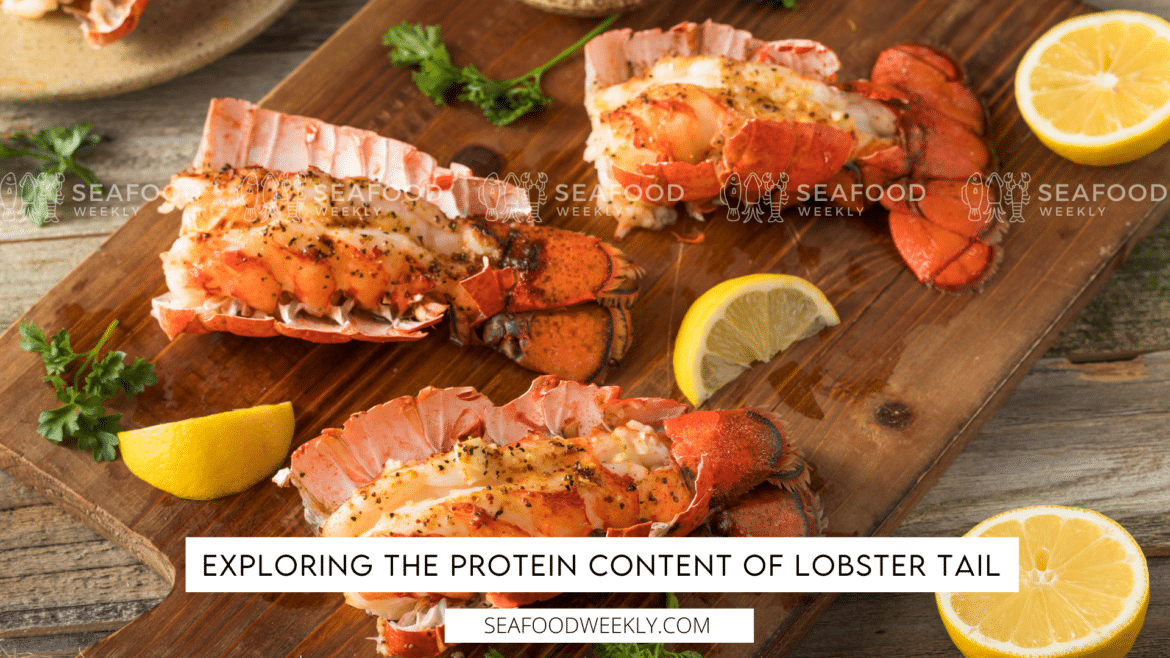
GIPHY App Key not set. Please check settings